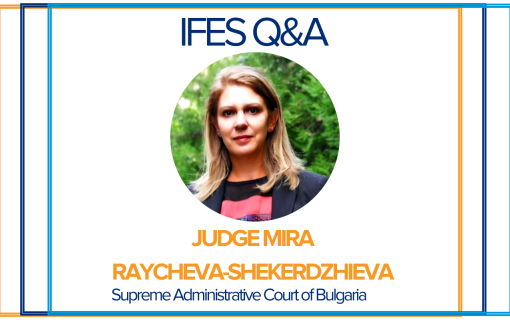Republic of Serbia: Pre-Election Technical Assessment
EXECUTIVE SUMMARY
In April the International Foundation for Election Systems (IFES) conducted a two week pre-election technical assessment (PETA) in preparation for the 1997 presidential and parliamentary elections in the Republic of Serbia. The IFES team analyzed the internal strengths and weaknesses of the electoral laws and administration of Serbia, including the appeals process, identifying and examining both where the electoral process is vulnerable to external influences and where it is open to independent monitoring. This report identifies ways to improve and safeguard the integrity of the electoral process, including methods for independently verifying its integrity.
In Serbia, there appears to be a widespread desire for substantial international involvement in this year's republican elections. The government and ruling party have expressed their support for international observation and seemed open to receiving some form of limited assistance' during the election period. An even greater international effort is generally desired by opposition groups and NGOs, as well as substantial segments of the public.
For the opposition and its supporters, the effectiveness of the OSCE Delegation may have raised expectations about the extent of possible international involvement to an unrealistic level. At the same time it is clear that international monitoring and other involvement in the upcoming elections should be extensive, active, and long-term. Based on these findings, the international community could play a useful and constructive role in the following areas of the election process by:
1. Providing advice and information on comparative election law and procedural practices, and facilitating discussion of election-related issues.
2. Promoting voter awareness and initiative by identifying target groups and effective projects, producing relevant materials, and initiating republic-wide programs. This should be accomplished through coordination with political parties and through partnerships and direct funding of NGOs and media outlets.
3. Facilitating greater domestic involvement over the control of the process by creating and disseminating training materials, and training trainers of expanded Polling Station Committee members (not formally trained by official structures) to man some 10,000 stations.
4. Providing long-term monitoring of both the overall election process and key events such as the compilation of voters lists the nomination and registration of candidates, the appointment of election commissions, administration of elections, and the adjudication of grievances.
5. Providing long-term monitoring of both the private and public media, including direct coverage of campaigns, access to media by political parties and candidates, and use of the media to disseminate election related information.
Read the Full Report.








